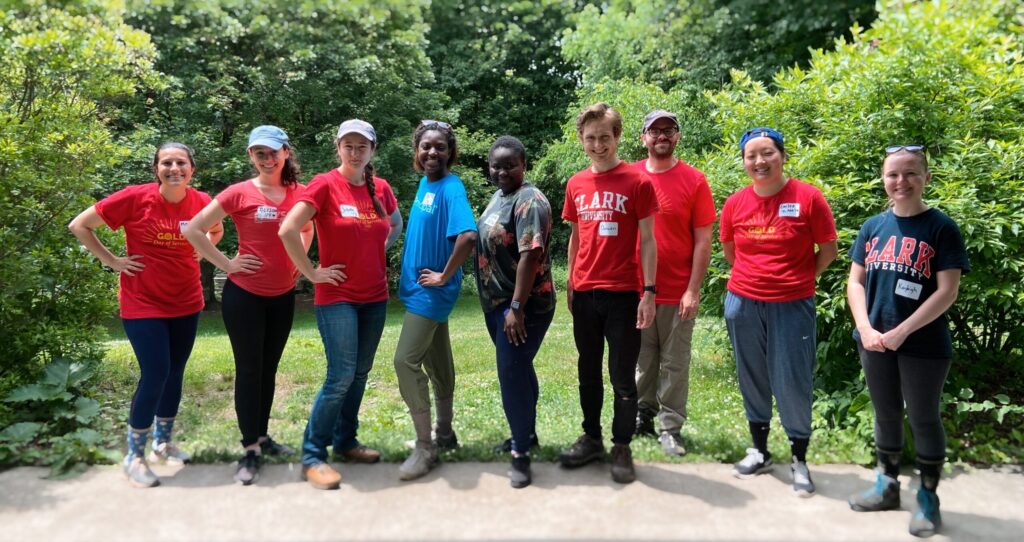
This summer, young alumni volunteered at the first-ever GOLD Day of Service to remove invasive species at Worcester’s Broad Meadow Brook Wildlife Sanctuary. They, along with three alumni employed at Mass Audubon, are just a few of many Clarkies on the forefront of protecting the environment.
Here are 3 ways Clark professors are using their research and expertise to combat climate change and protect our planet:
1. Ed Carr joins the Climate Security Roundtable
Professor Edward Carr, director of the International Development, Community, and Environment Department (IDCE) at Clark, was recently appointed to the Climate Security Roundtable of the National Academies of Sciences, Engineering, and Medicine. The Roundtable will explore climate-related topics impacting national security.
“This is an extraordinarily complex issue that is not easy to translate into productive policy and action,” says Carr. “I’m looking forward to helping shape the conversation around an honest understanding of the knowledge base.”
Carr was appointed from more than 350 nominations, representing his recognition as a national leader in a subject area.
Read more about Professor Carr’s impact
2. Robert Johnson and Dana Bauer explore freshwater conservation strategies in the American South
Robert Johnston, director of the George Perkins Marsh Institute, and Dana Bauer, assistant director and research scientist at the Marsh Institute, are co-principal investigators on “Conservation Incentives and the Socio-Spatial Dynamics of Water Sustainability,” a National Science Foundation-funded study focusing on the Red River.
Johnston is also the principal investigator on “Next Generation Choice Experiment Architecture for Spatially-Explicit Agricultural Conservation and Ecosystem Service Valuation,” a USDA-funded study based in Virginia.
“We’re looking at rivers that are already stressed in terms of water availability. Climate change is drying up many of these rivers, so it’s becoming even harder for people to agree to conserve,” Bauer says.
If successful, these projects will provide insights on the effectiveness of certain strategies to support these vital freshwater systems.
3. Gil Pontius leads local partners in data solutions to protect the Amazon
Clark geography Professor Gil Pontius will be spending summers in Southern Brazil, teaching scientists, professors, and students the foundational mathematical equations that will help them sift through data from satellites to measure land change.
Pontius’ methods will help inform initiatives that address such issues as deforestation and the evolution of wetlands. The fate of Brazil has a critical impact on the global environment, he says.
“The Amazon is like the lungs of the planet, and it’s being burnt down,” he adds. “If the burning continues, it’s going to influence the world even more. It affects climate change, biodiversity, agriculture, sustainability, and a variety of additional factors.”
Read more about Professor Pontius’s work in Brazil.
Whether it’s young alumni curtailing invasive species in Worcester, or prominent faculty leading the charge on global climate change action, Clarkies are on the front lines of making the world a greener place.
Are you a Clarkie working to protect our environment, or do you know others who are? Email us at alumni@clarku.edu or contact us at @clarkalumni on Facebook and Instagram.
